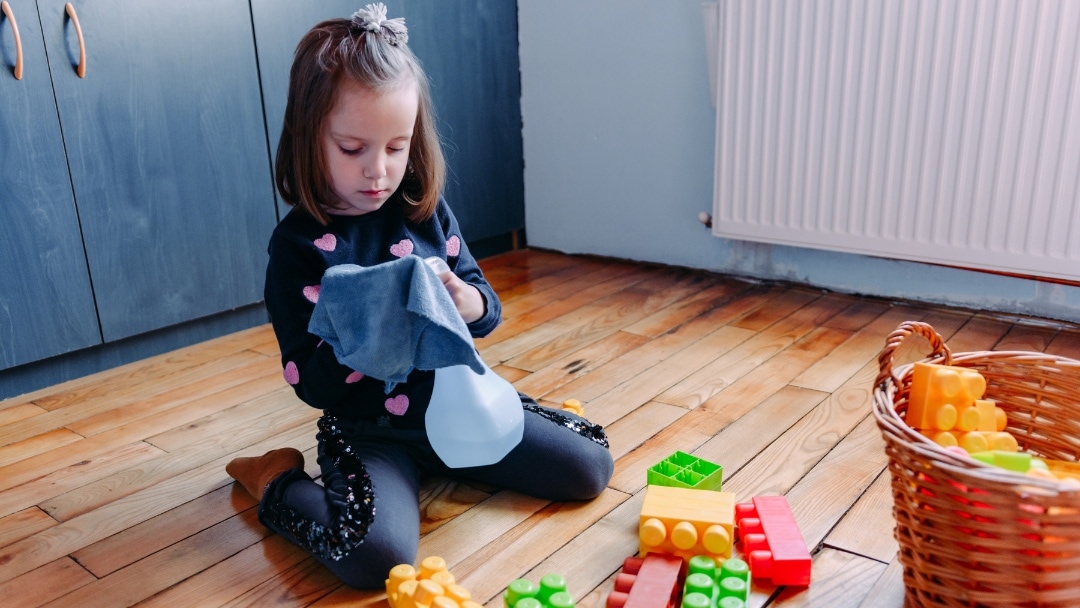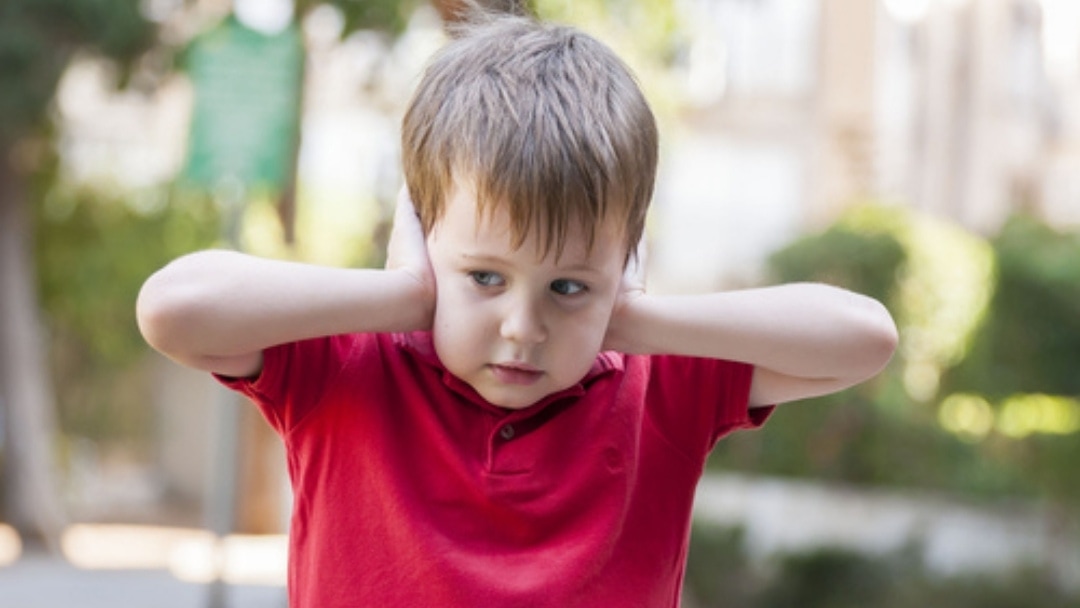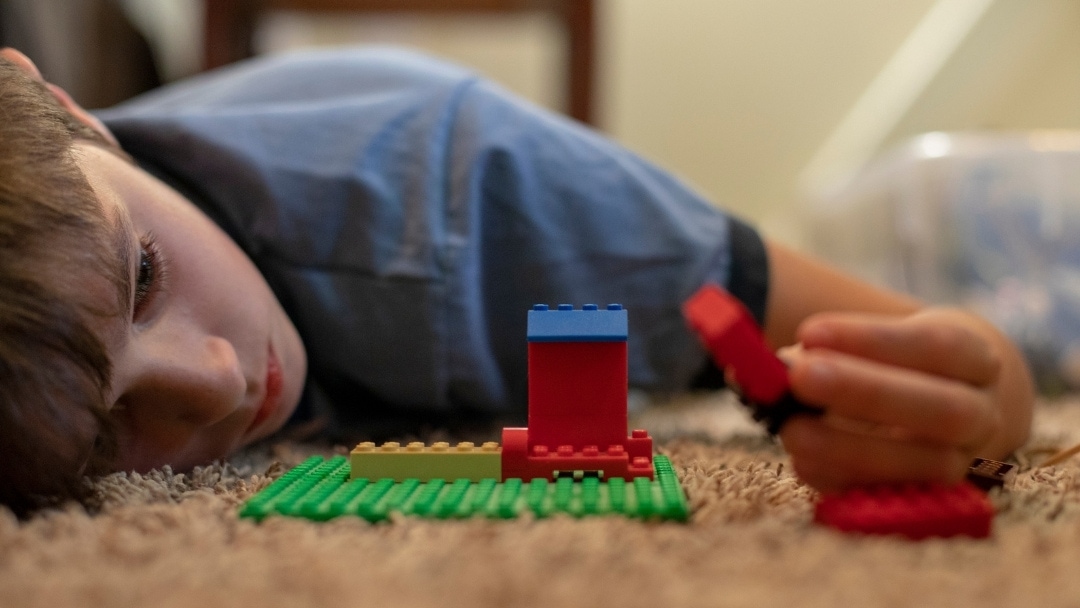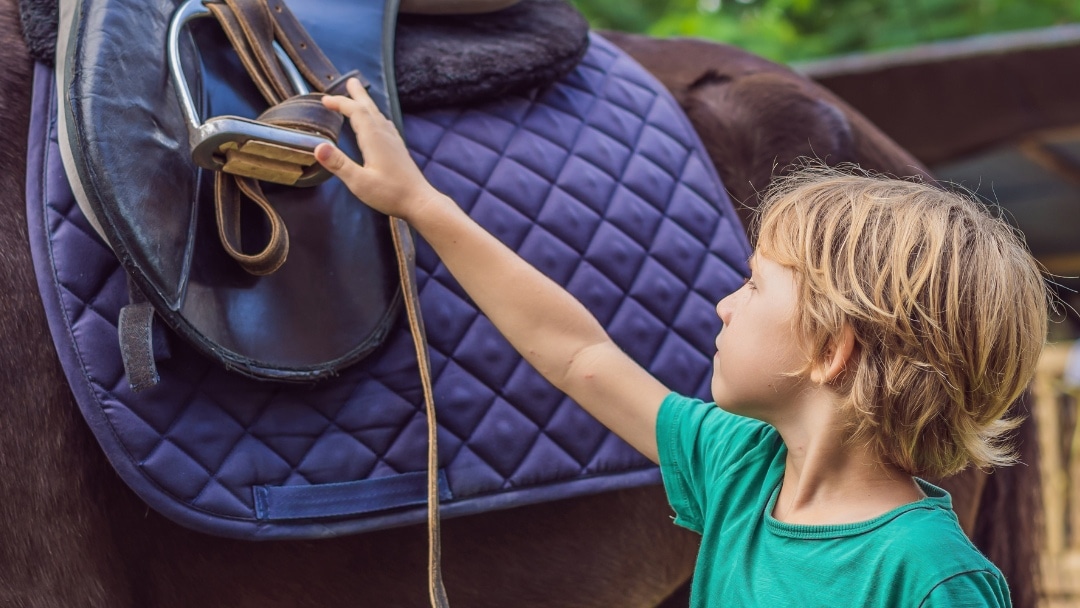In this blog post, Rebecca Klaw MS MEd offers strategies for encouraging play in children with Autism Spectrum Disorder.
As every reader knows, the child at play is not idle or aimless, boring or bored, or wasting time. The child is, in fact, engaged in complex activity that develops skills and builds, bit by bit, concepts as complicated as physics and essential as empathy.
Autism Play
For typically developing children, play begins small and simple. With input from parents, teachers, siblings and friends, this simple play begins to expand. Over time, the child’s play becomes rich and very complex. The elaboration of play is fueled by social interaction and serves as the basis for early learning.
Children with autism have difficulty learning from others how to expand their play. They tend to play in unusual, solitary, and repetitive ways. They often miss the social component to play because interaction can be so hard for them.
They might be good at manipulating objects and figuring out how they work. They might be great at creating sounds, sights and motions for their own pleasure. What they are not good at, however, is playing with someone else. Children with Autism Spectrum Disorder tend to get stuck in their play and they need, more than anyone, the input of others.
How Do We Play with a Child Who Wants to Be Left Alone?
We just insist that they play with us. They need to learn, through patient and skilled adults, how to play. It takes persistence, intelligence, flexibility and often humor. Children with autism need to be guided in memorable ways to explore all aspects of their world – not just how to manipulate objects, but how to share and build and pretend and elaborate and invent and describe and create.
Here are some strategies that my team of parents, therapists and teachers has found useful:
Heighten Interest
What does your child really enjoy? Is it motion, tactile experience? Whatever it is, use this as your doorway to play.
Be Persistent
An avoidant child doesn’t easily include you in his activity. Your participation in the play needs to enhance the experience for him. If he likes to spin, spin him faster and better and longer! If he likes to play in water, help him scoop and pour and dribble so that his pleasure increases with your presence.
Include Repetition
Return again and again to activities that keep him connected to you. Develop a whole menu of activities that engage him easily.
Establish Routines
Set a pattern for what you do together. Routines establish predictability and promote anticipation and participation. Many children with autistic spectrum disorders resist novelty. They need familiarity before they can join in the fun.
Add Sensory Stimulation
Use touch, movement, deep pressure, sounds and light. Play in the sink. Run through the house together. Give a foot massage. Wrestle. Make music. Dance. Play in the sand.
Minimize Language
Many children with autistic spectrum disorders have learned to tune out the normal human voice. Use interesting sound effects to get your child’s attention. Exaggerate your facial expressions.
Have Fun
Remember to be joyous and playful and full of spark.
When All Else Fails
Try some of our team’s favorite attention grabbers:
- Smell your child’s feet with a dramatic “p.u.!” and pass out on floor. Most children will put their feet by your nose again.
- Fall asleep and snore loudly. Then wake up suddenly with exaggerated protest. Repeat. Tell her, “Don’t you wake me up!”
- Put a blanket over a table to make a tent. Crawl under together with toys and flashlights.
- Wrap her up in a blanket and apply gentle pressure. Pretend she’s a hotdog; pour on mustard, ketchup and relish.
- Have her feed you real or pretend foods. Pretend that you love one thing and that something else is yucky. Exaggerate both reactions.
- Pretend to zip your mouth closed and try to talk. Get her to unzip you.
- Pull her around the room on a blanket or in a laundry basket. Get her to indicate where she wants to go.
- Tap your hand over her mouth. As she makes noises alter the sound by tapping slowly and quickly. Change roles.
Whatever you find that works will benefit your child. Remember that play is a wondrous and wonderful part of human development and essential for learning. With patient persistence, we can show our children with autistic spectrum disorders how to do it!
Rebecca Klaw is the Clinical Supervisor of Pressley Ridge Schools/Center for Autism in Pittsburgh, PA. She presents both locally and nationally on intensive play-based intervention for children with Autism Spectrum Disorder.
Still Looking for Answers?
Visit the Epidemic Answers Practitioner Directory to find a practitioner near you.
Join us inside our online membership community for parents, Healing Together, where you’ll find even more healing resources, expert guidance, and a community to support you every step of your child’s healing journey.




